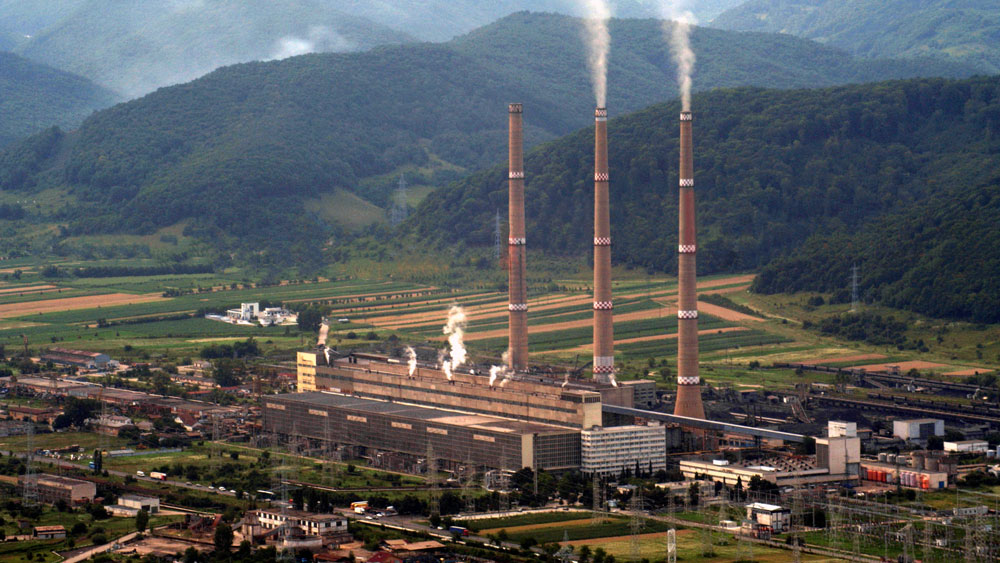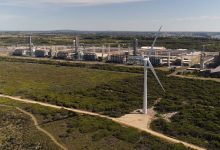Complexul Energetic Hunedoara to Continue Providing System Services at a Power of 400MW Until the End of the Year
Following a draft Emergency Ordinance initiated by the Ministry of Economy, Energy and Business Environment (MEEMA), Complexul Energetic Hunedoara (CEH) will continue providing system services at a power of 400 MW until the end of this year.
Over 100 employees of Mintia Thermal Power Plant, part of Complexul Energetic Hunedoara (CEH), on June 15 triggered a spontaneous protest in the courtyard of the unit, requesting the payment of meal tickets, heat aid and transport to the workplace, rights which they say they have not received since March.
According to the President of ‘Solidaritatea Hunedoara’ Trade Union, Cristian Istoc, the reasons of protesters’ discontent are related to the lack of coal stocks and of the perspective for CEH, which is why they requested the presence of Hunedoara County Prefect and of General Manager Samuel Dioane.
“Entitlements are three months past due and total about RON 2,000 for each employee. We have no coal stocks and claim that they should be covered from the state reserve,” the union leader said.
The union also supports the division of CEH into two separate entities, of which one Mintia Thermal Power Plant and the second consisting of Paroseni Thermal Power Plant and the viable coal mines in Jiu Valley: Lupeni, Livezeni, Lonea and Vulcan. Mintia Thermal Power Plant was shut down because it ran out of coal. The activity of restarting the facilities was resumed after the coal stock had been supplemented. About 700 employees work at Mintia thermal power plant.
The protest ended following management promises that the Meal tickets, heat aids and the equivalent value of transport would be granted according to a debt instalment plan.
Complexul Energetic Hunedoara will not lay off the employees, nor will it make redundant the existing staff.
There will be departures only upon retirement among those who are currently working, as there aren’t many employees left and the reorganization plan of CEH activity will not provide for layoffs.
“We don’t plan to make layoffs. On the contrary, we want to build a new energy complex, including all employees that currently work for CEH, except, of course, for Mintia, which will be transferred to Deva Municipality, or CJH, but without layoffs,” said Cristian Rosu, special administrator at CEH.
Those who are currently working are the last employees of mines or thermal power plants, but they will be able to receive severance payments if they are validated by the European Commission.
“If we are talking about the Ordinance, under which people would be made redundant, yes, we will be able, but only when we receive the renotification from the European Commission, which will tell us the period of operation of Lupeni and Lonea mines. We hope it will be 2027 and then we will be able to make an annual plan, in which people will leave under the ordinance each year,” Cristian Rosu also said.
The special administrator and the official receiver of CEH will prepare a reorganization plan that will be applied in the following period.
Consequences
The current difficulties of exporters and proposals to overcome them were presented to the Cabinet of the Prime Minister of Romania by Mihai Ionescu – Executive President of the National Association of Romanian Exporters and Importers (ANEIR) and Co-Chair of the Export Council of Romania.
ANEIR reported the serious consequences of the financial blockage generated by the state through CEH Hunedoara, which on 14.11.2019 entered into insolvency, according to the Court Judgment no. 601/F/14.11.2019.
Following the analysis of the structure of the Preliminary List of Creditors of the respective company, published in the Bulletin of Insolvency Proceedings no. 3526 of 20.02.2020, it is found that of the total receivables registered in the list of creditors of around RON 6bn, the amounts owed to 49 entities and state-owned companies or companies with majority state capital is 97.66% and the difference of only 2.34% represents debts to 145 companies with private capital, worth RON 142.35mln.
To avoid worsening the financial situation of the respective companies, of which some risk going bankrupt or insolvent, ANEIR has proposed that the Ministry of Economy, Energy and Business Environment (MEEMA) should initiate an emergency regulation for granting a financial aid to CEH Hunedoara, strictly directed to paying the amounts owed to the private companies registered in the list of creditors, which have concluded contracts through the public procurement system SICAP, amounts that will be exclusively used to pay obligations to the state and the salary rights to employees.
Given how the guidelines of the restructuring plan is outlined, which involves a division of CEH Hunedoara, in order to save some viable components, this urgent support would make the restructuring plan be carried out without legal action, which would block it in court.
Draft Emergency Ordinance initiated by MEEMA
Complexul Energetic Hunedoara (CEH) will continue providing system services at a power of 400 MW until the end of this year, according to a draft Emergency Ordinance initiated by the Ministry of Economy, Energy and Business Environment.
This measure had already been approved by the previous Government for the period April 2018 – June 30, 2020.
According to the explanatory memorandum, this is a measure necessary so that the safety of operation of the national energy system (NES) is not affected.
In Romania, electricity production sources are distributed unevenly between the south and the north of the country. Thus, in the northern half of the country there are installed capacities that cover only 20% of the electricity production of the national system. Under these circumstances, in case of non-functioning of groups belonging to CEH, there is a need to ensure an increase in power transfer from the south of the country to the central area and, further, to the north and west of the national energy system, with the related losses and overload of power transmission lines, the initiators explain.
Basically, through the operation of power plants belonging to CEH, electricity consumption in the north-west of the country is ensured mainly from energy production in that area, in contrast to the situation where these power plants are not operational, situation in which, to cover consumption, the transfer of power from other areas of the national energy system is necessary.
Also, the Romanian state has the obligation to implement a decision of the European Commission to recover the illegal state aid granted to Complexul Energetic Hunedoara, so far actions being taken to inventory the assets owned by CEH, for which the market value will be determined.
“Unfortunately, the valuation process is slowed down in the context of the COVID-19 crisis. Following the completion of the valuation process and determining the final list of creditors that will also include the state aid declared illegal, decisions will be made on the reorganization of the company, datio in solutum of certain assets and/or their winding-up. Under these circumstances, the only certain revenues of the company come from the transmission operator for the technological system services (secondary regulation band, fast tertiary reserve and slow tertiary reserve),” the explanatory note also shows.
The decrease of the adequacy level in the national energy system led to the transition of Romania from the status of electricity exporting country to that of net importer, this status becoming permanent starting with July 2019, according to the mentioned document.







